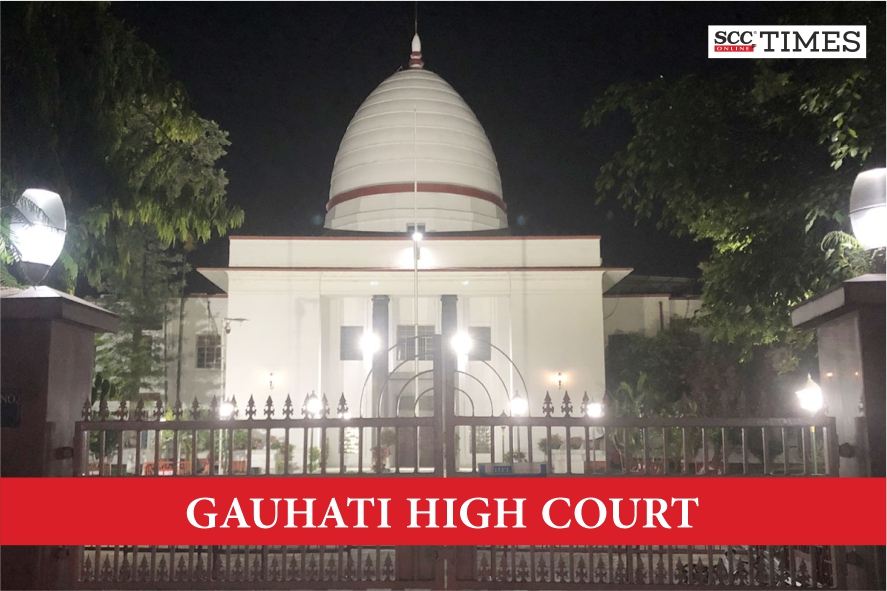Gauhati High Court: The present writ petitions were filed to challenge the constitutional validity of Article 11 of Schedule 1 of the Court Fees Act, 1870 (Assam Amendment) brought into effect by the Assam Court Fees (Amendment) Act, 1950 in respect of levy of Court fee for grant of probate or letter of administration. The fee is imposed at the rate of 7% ad valorem (levied at a rate percent of value) where the value of properties exceeds Rs 5,00,000 without there being any upper fixed limit. The Division Bench of Vijay Bishnoi*, CJ., and N. Unni Krishnan Nair, J., declared the impugned article to be ultra vires and violative of Article 14 of the Constitution.
Background
One of the petitioners was named the Executor in his late brother’s will. The District Court granted him probate of the will subject to the payment of due Court fees on the present value of the property likely to come in the hands of the beneficiaries, which was around Rs 3 Crores and the calculated court fee required to be paid came around Rs 28 Lakhs.
The petitioner contended that he was merely an Executor and not the beneficiary of the will and it was not feasible for him to pay such enormous court fees to obtain probate.
Similarly, the other petitioner, a daughter who was named the executor of one of the properties mentioned in the last will of her father and the amount of court fee required to be paid for getting probate was huge, had challenged the validity of such enormously high court fees.
Decision and Analysis
The court held that ‘fees taken in court’ cannot be equated with taxes as the levy of fees must be proven to be quid pro quo for the services rendered, and therefore, must take into account all relevant factors for the impost. Relying on the Supreme Court decision in State of T.N. v. Zenith Lamp and Electrical Ltd.,(1973) 1 SCC 162, the Court opined that since the fee levied is in regard of the service rendered and the Testamentary proceedings are simple in nature and less time consuming, there is no logical justification for it to be levied without an upper limit.
Rejecting the State’s contention that not fixing an upper limit in the levy of court fees in probate cases is justified as it may otherwise result in financial constraints which may affect the developmental works undertaken by the Government, the Court followed the Supreme Court decision in P.M. Ashwathanarayana Setty v. State of Karnataka, 1989 Supp (1) SCC 696 to hold that the impugned provision singled out a class of litigants, who are the applicants for the grant of probate and letters of administration for levy of ad valorem court fee without the benefit of upper limit and exposed them to a hostile discrimination and is thereby violative of Article 14.
The Court further held that there is no intelligible differentia between the two classes of litigants and the purported classification has no rational nexus to the object. Therefore, the Court held the impugned Article 11 to be ultra vires to Article 14 of the Constitution.
Lastly, relying on State of Madras v. P.R. Sriramulu(1996) 1 SCC 345, the Court said that the State Government should take into consideration and make effort to rationalise the levy of court fees in regard to the service rendered by the court.
[Prafulla Govinda Baruah v. State of Assam, 2024 SCC OnLine Gau 524, decided on 14-05-2024]
*Judgment authored by: Chief Justice Vijay Bishnoi
Advocates who appeared in this case :
For the Petitioners: P. Sinha, Advocate assisted by R. Dubey, Advocate, R. Choudhary, Advocate, assisted by N. Gautam, Advocate
For the Respondent: D. Nath, Senior Government Advocate assisted by R.B. Bora, Junior Government Advocate, N. Kalita, Government Advocate







